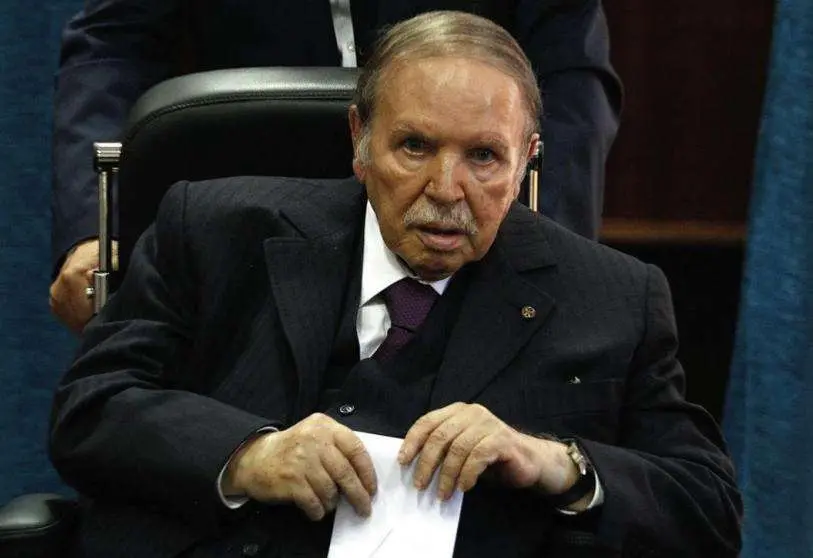Algiers courts close Buteflika chapter

The Algerian Supreme Court has made public its verdict against "the gang of four", alluding to Generals Mohamed Medien and Bachir Tartag, as well as Said Bouteflika and Luiza Hanoun, acquitting the defendants of the crime of "plotting against the security of the state and the army", for which the Prosecutor's Office asked for a 15-year prison sentence at first instance.
This decision by the highest body of the judiciary closes the long chapter in the reign of Abdelaziz Bouteflika, who during his 20 years at the head of the state exercised power absolutely, dismissing governments, judges and members of the military, and appointing by hand the highest representatives of the state who were loyal and submissive to him. His symbolic heir, General Ahmed Gaid Salah, who led the country with an iron hand for a year until his death on 23 December 2019, was in charge of purging the army and security services, manufacturing evidence and sending dozens of high-ranking military officers to prison, and focusing the final duel on the war between the Bouteflika system and "the gang of four".
The return of General Mohamed Medien and the return from exile of General Khaled Nezzar, who was head of the general staff and later defence minister, who was harassed by the courts teleguided by Bouteflika, represent the end of the era of the veteran Algerian politician born in the Moroccan town of Uxda who rose to the heights of power at the hand of his godfather Huari Bumedien, despite the suspicions of several colonels of the National Liberation Army of "collaboration with foreign powers".
The trial against "the gang of four" ended as a fiasco for the Algerian power system under Bouteflika. In his oral intervention in the trial decided by the Supreme Court, General Medien, who directed the Algerian civil and military secret services for over two decades, dismantled the accusations of the prosecution, based on the meeting the defendants held in the Dar El Afia mansion in Algiers, which the prosecution considered to be an "attack on the security of the state and the armies".
In addition to General Medien, the president's brother, Said Bouteflika, and the leader of the Trotskyist party, Luiza Hanun, as well as General Bachir Tartag, who succeeded General Medien, took part in the conclave. According to the former spy chief, the meeting took place just when Algeria was in the midst of a popular revolution in which hundreds of thousands of citizens were demanding a peaceful change of regime. Regarding the plot of which he was accused, General Medien emphasised: "How can I be accused of a plot against the authority of the state, when he called the meeting and the brother and adviser of the president in office was present? "Said Buteflika, who embodied the power," continued the accused, "wanted to know our opinion about what was happening in the country It was a time when everyone was called upon to intervene to find a solution to the crisis"; "a new prime minister had to be found who was endowed with broad prerogatives, credible and accepted by the people".
General Bachir Tartag, who succeeded General Medien as head of the secret services and organised the meeting at the Dar El Afia mansion belonging to the army and under his command, gave the same opinion at the trial.
The Supreme Court's ruling opens a new page in Algeria's recent history, in which the turbulent waters of the Bouteflika period appear to be returning to their course. General Medien could regain his former role as general coordinator of all the civilian and military secret services and restructure the internal and international information offices, which have recently accumulated a great deal of errors. The foreign services have failed to foresee either the Libyan and Sahel crisis, which is shaking the external security of Algeria's southern and southeastern borders; or what happened in the Saharan town of El Guerguerat, where the Moroccan armed forces re-established the passage of vehicles and goods with Mauritania; much less the White House's decision to recognise Moroccan sovereignty over Western Sahara and the opening of a US consulate in Dakhla, at the southern tip of the territory.
This was evidenced by the fact that three days after Assistant Secretary of State David Schenker was received in great pomp by Algiers accompanied by a delegation of political-military commanders, Schenker himself was first in Laayoune and then in Dakhla to inaugurate, together with the Moroccan foreign minister Nacer Burita, the US diplomatic representation in the Sahara. This was a major failure of Algerian diplomacy, attributable among other things to the mistakes made by General Youcef Bouzit's services, who has been in charge of foreign intelligence for eight months on the delicate issue of Western Sahara and relations with Morocco. The return of General Mohamed Medien looks difficult for the officers who served the Bouteflika system under the former army chief and hidden presidential hopeful, Ahmed Gaid Salah.

